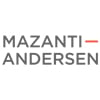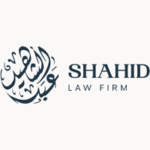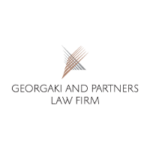-
What are the key rules/laws relevant to M&A and who are the key regulatory authorities?
General Corporate Matters, Procedures and Disclosures
Mergers and acquisitions (“M&A”) in Taiwan are primarily governed by the Business Mergers and Acquisitions Act (the “M&A Act”) unless a highly regulated business sector, such as financial industry or telecommunication, is involved (see Highly Regulated Business Sector below). With regard to matters not specifically provided for under the M&A Act:
- The Company Act governs general corporate matters and supplements the items that are not otherwise provided for under the M&A Act;
- The Securities and Exchange Act and the regulations promulgated thereunder govern the M&A procedures if the target company or acquirer is a public company, i.e., a company that attains public company status with the Financial Supervisory Commission (“FSC”) – which includes a foreign issuer. The following is a list of the key regulations promulgated under the Securities and Exchange Act that are applicable to M&A activities in Taiwan involving a public company:
- Regulations Governing the Establishment and Related Matters of Special Committees of Public Companies for Merger/Consolidation and Acquisition;
- Regulations Governing the Acquisition and Disposal of Assets by Public Companies;
- Regulations Governing Public Tender Offers for Securities of Public Companies;
- Regulations Governing the Declaration of Acquisition of Shares in Accordance with Article 43-1, Paragraph 1 of the Securities and Exchange Act;
- Operating Rules of the Taiwan Stock Exchange Corporation (“TWSE”);
- Operating Rules of the Taipei Exchange (the “TPEx”);
- TWSE Procedures for Verification and Disclosure of Material Information of Companies with Listed Securities; and
- TPEx Procedures for Verification and Disclosure of Material Information of Companies with TPEx-Listed Securities.
Highly Regulated Business Sector
If the target company is in a highly regulated business sector, the laws governing that industry will be relevant.
For example, the Telecommunications Act, the Telecommunications Management Act, and the regulations promulgated thereunder by the National Communications Commission for telecom companies would govern the M&A involving telecom companies. If the M&A involves a financial institution chartered by the FSC, the Financial Institutions Merger Act, the Financial Holding Company Act, and the Regulations Governing the Investing Activities of a Financial Holding Company would prevail over the M&A Act.
Antitrust
The Fair Trade Act (the “FTA”) was promulgated in 1991 to promote free and fair competition. Antitrust concern may arise if there is a “combination” due to the M&A transaction. A “combination” under the FTA refers to any of the following circumstances where an enterprise:
- merges with another enterprise;
- holds or acquires at least one third of the voting shares or total capital contributions in another enterprise;
- acquires or leases all or a major part of the business or property of another enterprise;
- regularly operates business together with another enterprise or operates business on behalf of another enterprise; or
- directly or indirectly controls the business operations or the appointment and dismissal of personnel of another enterprise.
A report of combination is required to be made with the Fair Trade Commission (the “FTC”) if:
- as a result of the combination an enterprise will have one third of the market share;
- one of the enterprises in the combination has one fourth of the market share; or
- sales for the preceding fiscal year of one of the enterprises in the combination exceeds the threshold amount publicly announced by the FTC:
- the total global sales of all enterprises involved in the combination exceed NT$40 billion in the previous fiscal year, and at least two enterprises have domestic sales of more than NT$2 billion in the previous fiscal year;
- the enterprise involved in the combination is a non-financial institution whose domestic sales in the previous fiscal year of more than NT$15 billion, and the enterprise to be merged with it has domestic sales in the previous fiscal year of more than NT$2 billion; or
- the enterprise participating in the combination is a financial institution whose domestic sales in the previous fiscal year of more than NT$30 billion, and the enterprise to be merged with it had domestic sales in the previous fiscal year of more than NT$2 billion.
The parties in a combination must not proceed with combination during the 30 business days’ period commencing from the filing date, which may be extended up to 60 business days if the FTC deems it necessary. The FTC may not reject a combination if the overall economic benefits of it outweighs the disadvantages resulting from the restraint of competition.
Labor Protection
The M&A Act provides certain labor protection for the employees when facing an M&A transaction. In general, the surviving company in a merger or the acquiring company must notify the employees that it wishes to retain at least 30 days prior to the record date of the effective date of the M&A transaction. The retained employees shall respond within 10 days upon the receipt of such notice and would be deemed to accept the retention absent of a response. The seniority of the retained employees must be recognized by the surviving company or the acquiring company. The employment of those who rejected the retention offer may be terminated with prior notice (or payment in lieu of such notice) and by paying severance or pension.
The Labor Standards Act supplements the provisions of the M&A Act regarding the treatment and protection of employees.
Foreign Investment Restrictions
If the acquirer is not a Taiwanese individual or enterprise, depending on the nationality or jurisdiction of incorporation of the acquirer, the transaction will be subject to requirements set forth in the Statute for Investment by Foreign Nationals, the Statute for Investment by Overseas Chinese, or the Statute for Investment by People in Mainland China and to review by the Taiwan’s Department of Investment Review (the “DIR”).
-
What is the current state of the market?
Due to its business agility, professional talent cultivation, and accelerated technology innovation, Taiwan’s real gross domestic product (GDP) grew by 4.59% in the whole 2024 and the real GDP in 2025 is projected to grow by 3.14% in 2025, estimated by Directorate-General of Budget, Accounting and Statistics of Taiwan. According to 2025 Taiwan Economic Forecast released by Academia Sinica, the most prestigious academic institution in Taiwan, the annual growth rate for real private investment is forecasted at 5.46% because of vigorous demands for high technology, such as AI-driven opportunities. The Central Bank of China (Taiwan) (the “CBC”) in its Minutes of Joint Meeting of the Board of Directors and Supervisors on December 19, 2024 upgraded its forecast for the 2024 GDP growth rate to 4.25%, representing a 0.43 percentage point increase from its September 2024 forecast. The forecast for GDP growth in 2025 was revised up to 3.13% by the CBC, representing a modest upgrade by 0.05 percentage points from its September 2024 forecast based on expected continuation of domestic growth momentum, and the output gap was estimated to be slightly negative next year.
Taiwan’s industrial players continued to seek M&A opportunities domestically and internationally, with the aim of achieving vertical and horizontal integration, as well as operating synergistically. Taiwanese enterprises are also very actively using M&A as means for expanding its business offerings and markets geographically.
-
Which market sectors have been particularly active recently?
The energy and resources sector, healthcare sector (in particular, precision medicine), and high-tech sectors in the fields of artificial intelligence and big-data analysis appear to attract more M&A activities. Also, in terms of domestic M&A activities, financial institutions and the technology and consumer sectors are also recent highlights of the market.
-
What do you believe will be the three most significant factors influencing M&A activity over the next 2 years?
With respect to deal-making and structure, the rising interest rates leading to higher costs of capital will continue to create challenges for M&A activities. The Central Bank of China (Taiwan) (“CBC”) has not cut interest rates since 2020 and raised the policy rate in March 2024 and the required reserve ratio twice in June and September 2024. In December 2024, the CBC Chairman shared that there is currently no expectation that the stance on policy rate would lean towards doves. Unlike the situation in the past period of low rates, buyers are less motivated to make bold moves, such as using leverage for a buyout or making larger acquisitions.
In addition, increasing geopolitical tensions could be compelling factors having an impact on the industry and, thus, have an impact on M&A activities, such as the war in Ukraine triggering crude oil supply concerns and inflation, the Red Sea conflict seeing shipping costs to rise substantially, and the United States’ export control sanctions causing global supply chain shifts.
Tightened regulatory scrutiny arising out of a greater sense of national security concerns continues to play a key factor that deal-makers need to take into account when planning and adapting M&A strategies, evidenced by the rejection of Nippon Steel’s planned acquisition of U.S. Steel. Likewise, the escalated cross-strait tensions may have impacted the level of scrutiny exercised by Taiwan authorities over deals involving acquisitions of Taiwan companies.
Finally, the U.S. government has initiated or threatened tariffs on some of the major trade partners with the U.S., which includes Taiwan and its chipmakers, leading to uncertainty at the stock market. Investor skittishness arising from market volatility (which, in some cases, leads to renegotiation of valuation) may result in either prolonged or paused negotiations and even aborted transactions.
-
What are the key means of effecting the acquisition of a publicly traded company?
Acquisition of a publicly traded company will ordinarily be carried out by a public tender offer, merger, or stock swap. A combination of a public tender offer followed by mergers or stock swaps is often adopted when the privatization of a publicly traded company is an objective of the transaction.
-
What information relating to a target company is publicly available and to what extent is a target company obliged to disclose diligence related information to a potential acquirer?
There is no equivalent of the U.S. Securities and Exchange Commission’s Rule 10b-5 disclosure in Taiwan. If the target company is a private company, there is very little publicly available information besides the key company registration information available on the governmental website. Such information includes the name, the incorporation date, the last amendment date of the registration information, the list of directors and supervisors, the number of shares held by each shareholder that appointed the directors (as the case may be), and the registered office or factory, if any. Also, the articles of incorporation of Taiwanese companies can be obtained by anyone via an application to the competent authorities. There is no obligation by the target company to disclose diligence-related information. The scope of the disclosure will depend on the agreement between the parties.
If the target company is a public company, publicly available information is available, which includes the annual reports; semi-annual, quarterly, and monthly financial information; prospectus; public disclosures for each capital increase and bond issuance; and any other information that a public company is required to disclose under the relevant securities laws.
A public company has no obligation to disclose any additional information in the context of its ongoing or potential M&A activity. All participants in M&A of a public company are required to keep in confidence the information received and undertake not to trade the securities of such public company, due to the application of insider trading rules.
-
To what level of detail is due diligence customarily undertaken?
If the target company is a private company, it is customary for an acquirer to conduct comprehensive due diligence covering all aspects of the target company’s operations. It is common to trace the last three to five years of documents. The extent of due diligence is often affected by time and costs, and a more cost-sensitive acquirer normally conducts focused due diligence and a red-flag analysis to identify major risks.
A public company tends to resist comprehensive due diligence, since Taiwan has strict securities regulations regulating public companies in Taiwan, and the acquirer would normally focus on the publicly available information of the target company.
-
What are the key decision-making bodies within a target company and what approval rights do shareholders have?
For a private company, the decision-making organs are the directors and, if the procedures require, the shareholders. For a public company, the additional decision-making organ is the audit committee (or a special M&A committee, if established), which is tasked with making recommendations to the directors and the shareholders. The audit committee or special M&A committee is entitled to hire external counsels to help discharge its duties.
In general, shareholders’ approval is required to effect mergers, stock swaps, spin-offs, general assumption of liabilities, or sale of all or substantially all assets. The approval threshold is generally majority approval by the shares represented by the shareholders present at a shareholders’ meeting attended by the holders of two-thirds of the total issued shares. For a public company, if the shareholders’ meeting is attended by a majority of shareholders but less than two-thirds of the total voting shares, the approval can be obtained if the shareholders of two-thirds of the attending shares approve the transaction.
In addition, if the M&A will result in delisting of the public company, the approval threshold is the affirmative votes of two-thirds of the total issued and outstanding shares of the company.
The M&A Act also provides for a short-form merger where the board approval of the target company would suffice if merging into a company that holds at least 90% of its issued shares. The 2015 and 2022 amendments to the M&A Act introduced a variety of merger, acquisition, and spin-off scenarios where the buyer may only need to obtain board approval if the consideration it pays falls below a certain threshold.
The M&A-related laws and regulations also govern the information and documents that must be included in the shareholder meeting notice. A 2022 amendment to the M&A Act further strengthened the requirements for disclosure of directors’ personal interests in a M&A transaction, and it requires that the shareholders’ meeting notice must disclose the interested director’s personal interest in the M&A transaction and set forth his or her decision of approval/dissent and the rationales thereof.
-
What are the duties of the directors and controlling shareholders of a target company?
Under the Company Act, directors owe a duty of care as a “good administrator” to the company and shareholders. This is similar to fiduciary duties under common law. In addition, the M&A Act also imposes additional obligations of the directors in M&A transactions.
In the event of merger/consolidation and acquisition by a company, the board of directors shall, in the course of conducting the merger/consolidation or acquisition, fulfill its duty of care in the best interests of the company. Any director involved in decision-making for a merger/consolidation or acquisition shall be liable for any damages to the company as a result of breach of applicable laws, ordinances, articles of incorporation, or the resolution of the general meeting conducting the merger/consolidation and acquisition, unless a director is able to provide sufficient evidence to demonstrate his or her objection to the transaction. In the merger/consolidation and acquisition by a company, a director who has a personal interest in the merger/consolidation and acquisition transaction shall disclose at the board meeting and the shareholders’ meeting the essential contents of such personal interest and the cause of his or her approval or dissent with respect to the resolution on the merger/consolidation or acquisition.
Please note that under the M&A Act, the acquirer will not be required to abstain from voting on the shares of the target that it holds at the time of acquisition, and in the event that any director of the target is a representative of the acquirer, such director will also not be required to abstain from voting on the acquirer’s proposed M&A with the target, notwithstanding the resolutions on such M&A transactions present a personal interest.
In a tender offer, the directors and controlling shareholders of a target company are further obligated to disclose, as the case may be, the following information with respect to the two years prior to filing of the tender offer in the prospectus:
- All of the agreement or covenant documents entered into with the tender offeror or any of its related parties in connection with such public tender offer, and
- The date, number, and price in relation to any sale of shares of the target company involving the tender offeror or any of its related parties.
In the case of a public company, the members of the special committee or audit committee, as the case may be, are also required under the Regulations Governing the Establishment and Related Matters of Special Committees of Public Companies for Mergers/Consolidation and Acquisition to exercise the duty of care of a good administrator in performing their official duties faithfully.
-
Do employees/other stakeholders have any specific approval, consultation or other rights?
Employees do not have a special approval or consultation right. However, for an M&A transaction under the M&A Act, the surviving company or acquiring company must notify the employees of the target who it wishes to retain and inform them of the relevant employment terms at least 30 days prior to the effective date of the transaction. The employees may decline to be retained and, instead, receive severance pay or a pension payment (if they qualify for retirement), as the case may be. If they accept the retention, then their past service tenure with the target must be recognized by the acquirer.
In addition, in the case of a merger, general assumption of liabilities, sale of all or substantially all assets, or a spin-off (or division), the M&A Act provides for the protection of the target company’s creditors. Upon obtaining the requisite corporate approval of such a transaction, the target company shall immediately notify or make a public notice to each creditor and specify a period of not less than 30 days to allow an objection to be filed by the creditors of the target company. A target company that has not given notice or made a public announcement, or that otherwise fails to satisfy a creditor who has raised an objection to the spin-off (or division) in a manner permitted under the law, shall not assert the transaction as a defense against such creditors. In a spin-off, the surviving or newly incorporated transferee company (that receives the assets from the spin-off), unless the liabilities existing before the spin-off could be severed, shall, within the scope of contributions made by the transferee company, be jointly and severally liable to discharge the liabilities incurred by the company that was spun off prior to the spin-off. However, the creditors’ right to claim for the performance of the joint and several liabilities shall be extinguished if such right is not exercised by the creditors within two years from the reference date of the spin-off.
For a public company, the M&A must first be reviewed by a special committee formed by the board or the audit committee before it is submitted to its board for approval.
-
To what degree is conditionality an accepted market feature on acquisitions?
Almost every M&A project in Taiwan has conditions to closing and it largely depends on the bargaining power of the parties. Customary conditions include required corporate approval, governmental approval, no material adverse change, accuracy in representations and warranties, and satisfactory due diligence results. It is also common to add additional closing conditions for special circumstances, such as rectification of any deficiencies discovered during due diligence.
-
What steps can an acquirer of a target company take to secure deal exclusivity?
The letter of intent or memorandum of understanding (or other documents serving the same purpose) may incorporate a binding exclusivity clause and a breakup fee. Another possible deterrent is to build in a liquidated damages clause for breach of exclusivity. Under Taiwan laws, a liquidated damages obligation is enforceable, though the court has the discretion to reduce the amount after considering the degree of the breach and the financial conditions of the breaching party.
-
What other deal protection and costs coverage mechanisms are most frequently used by acquirers?
In addition to the breakup fee and liquidated damages for breaching exclusivity, reimbursement of legal fees and costs of due diligence are frequently included in the letter of intent or memorandum of understanding.
-
Which forms of consideration are most commonly used?
Cash remains the most common form of consideration in Taiwan for M&A transactions. In some cases, such as group restructuring, shares of the acquirer may be used. However, there are restrictions on the use of shares.
If the target company is a private company and the acquirer is a foreign entity, under the current regulations of the DIR (the agency in charge of reviews of foreign investment applications), the acquirer must either be an operating company or satisfy other qualifications set by the DIR. This makes companies in tax-haven countries, such as the Cayman Islands, generally unfit to act as the acquirer in a stock-for-stock acquisition or merger.
If the acquirer is a public company in Taiwan, use of its own shares as consideration will be subject to additional requirements, which include profitability or net equity value tests of the acquirer and the target company and the prior approvals of (a) the FSC, (b) the TWSE for TWSE-listed companies, and (c) the TWSE for TPEx-listed companies.
-
At what ownership levels by an acquirer is public disclosure required (whether acquiring a target company as a whole or a minority stake)?
The Company Act requires that an acquirer must notify the target company within one month after it obtains one-third or more of the total voting shares or capital of the target company and again when it obtains one-half or more. The target company must then publicly disclose the identity of the acquirer and its shareholding within five days after receipt of such notice or face administrative fines.
If the target company is a public company, in addition to the above:
- Once the acquirer (together with any other persons acting in concert with the acquirer) obtains 5% of such company’s shares, according to the Regulations Governing the Declaration of Acquisition of Shares in Accordance with Article 43-1, Paragraph 1 of the Securities and Exchange Act promulgated in January 2024 and became effective on May 10, 2024, the transaction is required to be reported to the FSC (with a copy to the target company, TWSE, or TPEx, depending on the listed market of the target company) and be publicly disclosed; for a corporate acquirer, identity of any shareholder holding 5% or more of its shares and any person controlling such shareholder shall be disclosed as well. Any subsequent increase or decrease of the shareholding totaling 1% or more of the total issued shares of the target company would need to be reported until the acquirer’s shareholding falls under 5% of the target company’s total issued shares. There are a few exceptions where a public disclosure is required regardless of the acquirer’s shareholding percentage in the target company: (a) in a tender offer of a public company’s shares, the offeror is required to publicly disclose its stake in the target company, regardless of whether such stake is 5% or more; or (b) if the acquirer becomes a director of the target company, the director is required to disclose its shareholding on a monthly basis; and
- If the acquirer obtains more than 10% of the issued shares of the target company, it shall also report to the FSC or the voting rights of the portion of shares in excess of such 10% threshold would be suspended. The ownership threshold that triggers this reporting obligation could be lowered to align with the new disclosure regulation in the preceding paragraph.
-
At what stage of negotiation is public disclosure required or customary?
For a private company, there is generally no public disclosure requirement at the stage of negotiation. In the case where the transaction involves a TWSE-listed or a TPEx-listed company, such a company is subject to the public disclosure requirements provided by the TWSE Procedures for Verification and Disclosure of Material Information of Companies with Listed Securities and the TPEx Procedures for Verification and Disclosure of Material Information of Companies with TPEx-Listed Securities, respectively. The general principle is that a public company must disclose on the designated website—the Market Observation Post System that is hosted by the TWSE (Taiwan’s equivalent to U.S. Securities and Exchange Commission’s EDGAR)—any matter that had a significant impact on shareholders’ rights or the price of the securities within two days following the date of occurrence (including the date of occurrence). The date of occurrence is further defined as “the date of contract signing, date of payment, date of consignment trade, date of transfer, dates of boards of directors resolutions, or another date on which the counterpart and monetary amount of the transaction can be confirmed, whichever date is the earliest,” provided that, for an investment for which approval of a competent authority is required, the earliest of the above date or the date of receipt of approval by the competent authority shall apply. Therefore, a public disclosure is required at any stage of the negotiation that meets the foregoing definition of the date of occurrence. In certain circumstances, a press conference might be required by the TWSE or the TPEx, respectively, which should be held by the management of the public company during the nontrading hours immediately following the adoption of the board meeting resolution approving the M&A transaction. Additionally, in the event of an M&A transaction involving a foreign company, the public company shall promptly, completely, and accurately input information related to the resolution for, process of, and method of the M&A activities.
-
Is there any maximum time period for negotiations or due diligence?
There is no legal restriction as to the maximum time period for negotiation or due diligence. The length of negotiations and due diligence are determined by the parties, taking into account, among other things, the costs to be incurred, the business objectives, and the certainties of the deals.
-
Is there any maximum time period between announcement of a transaction and completion of a transaction?
Generally, there is no maximum period between deal announcement and its completion.
One exception is an acquisition of securities of a public company through a tender offer. The Regulations Governing Public Tender Offers for Securities of Public Companies (the “Regulations”) requires that the initial tender offer period shall be at least 20 business days and no more than 50 business days. This initial period can be extended once for a period of up to 50 business days. The Regulations do not stipulate how soon the consideration must be paid following the expiry of the tender offer period, but the FSC recommends the offeror to pay consideration within 5 to 9 business days after the expiry of the tender offer period, depending on the form and source consideration.
A tender offer may only commence once it is announced, but the Regulations do not stipulate how soon the tender offer must commence after the announcement. Therefore, technically speaking, there is no maximum period between deal announcement and its completion for a tender offer.
-
Are there any circumstances where a minimum price may be set for the shares in a target company?
While there is no law setting the minimum price in an acquisition, it is typical to offer a price that is fair, often at a premium over market price to garner shareholders’ support to complete the transaction. For a public company, the audit committee (or a special M&A committee, if established) shall retain an independent expert to render a fairness opinion to support the consideration, which shall be presented to the directors and shareholders. Also, as dissenting shareholders who have exercised their appraisal right may ask the court to decide the fair price, the acquirer should also consider whether the offer price could be upheld in court. If the court decides on a higher price, there will be extra costs to be paid to those dissenting shareholders, though it would not affect the validity of the transaction.
-
Is it possible for target companies to provide financial assistance?
It is possible for target companies to provide assistance to the acquirer to purchase its own shares. In general, when the target companies consider whether to provide financial assistance and the forms of such assistance, the directors of the target company must exercise duty of care as a good administrator to the company and shareholders, and they must pay close attention to potential conflicts of interest. Also, for any assistance that involves lending of the target company’s funds, such assistance is subject to the lending restrictions applicable to all companies in Taiwan—Taiwan’s Company Law prohibits a company from lending funds to its shareholders or any others unless: (a) there are business transactions between the companies, or (b) there is a need for short-term financing between the companies, provided that the amount of such short-term financing does not exceed 40% of the lender’s net value. In addition, for public companies, the restrictions under the Regulations Governing Loaning of Funds and Making of Endorsements/Guarantees by Public Companies would apply. For example, a public company or its subsidiaries cannot loan an amount exceeding 10% of the net value of the borrowing enterprise.
-
Which governing law is customarily used on acquisitions?
Taiwan’s M&A Act is customarily used in an acquisition of a Taiwan company, as it provides various tax benefits. The amended M&A Act further increases the flexibility of relevant tax treatments, allowing amortization of intangible assets acquired through M&A transactions for an expanded remaining period of the legal entitlement thereof or ten years in cases where the law does not specify the number of years of enjoyment. In addition, under certain conditions, individual shareholders of dissolved or split companies are entitled to defer the tax assessment of the dividend income they gained through the M&A transaction.
-
What public-facing documentation must a buyer produce in connection with the acquisition of a listed company?
Taiwan’s M&A Act requires written contracts for the transactions governed thereunder. To the extent that a shareholders’ meeting is required, such contracts will be submitted for the shareholders’ approval. If a shareholders’ meeting is not required, then the shareholders will be informed of the major contents of such contracts. In a tender offer, as the offer is made to all shareholders of the target company, the acquirer needs to prepare a tender offer report and a tender offer prospectus. All attachments to these documents, such as a legal opinion and a fairness opinion, are public-facing documents.
-
What formalities are required in order to document a transfer of shares, including any local transfer taxes or duties?
Subject to any governmental approvals required for the consummation of the transactions, such as foreign investment approval if the acquirer is foreign and merger control approval if the acquisition raises antitrust concerns, transfer of a share requires an entry on the shareholder register. If the transferred shares are represented by certificates, then endorsement and delivery by the transferor as well as entry into the shareholder roster maintained by the target company are necessary to effect a transfer. For shares represented by share certificates, capital gain taxes are currently suspended, but there is still a securities transaction tax of 0.3% on the consideration.
-
Are hostile acquisitions a common feature?
In Taiwan, hostile acquisition is not a common feature but happens occasionally. This is mainly because the government considers minority shareholder protection as a priority, and the target company therefore can leverage the objections from the minority shareholders as a way of defense, causing uncertainties regarding the deal.
With regard to M&As involving financial holding companies particularly, the FSC amended the Regulations Governing the Investing Activities of a Financial Holding Company in 2018 to facilitate consolidations between financial holding companies by not requiring the consent of the target company’s board in favor of the M&A if the acquirer meets the conditions of capital adequacy, good management capability, global expansion capability, and good corporate social responsibility. In November 2022, Fubon Financial Holding Co., Ltd. completed its merger with Jih Sun Financial Holding Co., Ltd. This deal was initially a hostile acquisition and the first M&A between two financial holding companies in Taiwan.
-
What protections do directors of a target company have against a hostile approach?
Directors who are also shareholders can enter into a shareholders’ agreement or a voting trust with other shareholders for any matters relating to M&As.
Also, the amendments to the Company Act in recent years have allowed Taiwanese private companies to issue preferred shares with multiple votes, veto rights, or different ratios for conversion to common shares (previously, each preferred share had to be convertible into one common share). However, these special features are only applicable to a private company. We have not seen “poison pill”-like protection for public companies.
From a director’s personal liability perspective:
- Taiwan’s M&As law permits the target directors appointed by the acquirer to vote on the acquisition, without the need to abstain; and
- A public company is required to establish a special M&A committee to, or if there is an audit committee, such audit committee is required to, review and negotiate the plan of acquisition to ensure its fairness and reasonableness prior to the submission of such plan of acquisition to the board of directors for approval, which reduces the exposure of the directors to liabilities when they vote in line with the recommendation of the special committee.
-
Are there circumstances where a buyer may have to make a mandatory or compulsory offer for a target company?
A buyer is required to initiate a tender offer if it proposes to acquire, by itself or acting in concert with others, 20% or more of the issued shares of a public company within any 50-day period.
-
If an acquirer does not obtain full control of a target company, what rights do minority shareholders enjoy?
If an acquirer does not obtain full control of a target company, the minority shareholders continue to possess all shareholder rights prescribed by law, which include scenarios that give rise to appraisal rights under the M&A Act or the Company Act (for example, under the M&A Act, a shareholder is entitled to appraisal rights if a private company amends its articles of incorporation to provide a right of first refusal, drag along right, or certain transfer restrictions), upon which they may exercise appraisal rights in scenarios and manners prescribed under the M&A Act to demand the target company repurchase its shares at a fair price.
-
Is a mechanism available to compulsorily acquire minority stakes?
The M&A Act permits the use of cash as consideration in a merger or share swap. Such mechanisms could effectively cash out the minority stakes, while the minority shareholders may exercise appraisal rights in scenarios and manners prescribed under the M&A Act to demand the target company repurchase its shares at a fair price.
On the other hand, minority shareholders cannot require the acquisition of their shareholding other than in scenarios where they are entitled to appraisal rights under the law.
Taiwan: Mergers & Acquisitions
This country-specific Q&A provides an overview of Mergers & Acquisitions laws and regulations applicable in Taiwan.
-
What are the key rules/laws relevant to M&A and who are the key regulatory authorities?
-
What is the current state of the market?
-
Which market sectors have been particularly active recently?
-
What do you believe will be the three most significant factors influencing M&A activity over the next 2 years?
-
What are the key means of effecting the acquisition of a publicly traded company?
-
What information relating to a target company is publicly available and to what extent is a target company obliged to disclose diligence related information to a potential acquirer?
-
To what level of detail is due diligence customarily undertaken?
-
What are the key decision-making bodies within a target company and what approval rights do shareholders have?
-
What are the duties of the directors and controlling shareholders of a target company?
-
Do employees/other stakeholders have any specific approval, consultation or other rights?
-
To what degree is conditionality an accepted market feature on acquisitions?
-
What steps can an acquirer of a target company take to secure deal exclusivity?
-
What other deal protection and costs coverage mechanisms are most frequently used by acquirers?
-
Which forms of consideration are most commonly used?
-
At what ownership levels by an acquirer is public disclosure required (whether acquiring a target company as a whole or a minority stake)?
-
At what stage of negotiation is public disclosure required or customary?
-
Is there any maximum time period for negotiations or due diligence?
-
Is there any maximum time period between announcement of a transaction and completion of a transaction?
-
Are there any circumstances where a minimum price may be set for the shares in a target company?
-
Is it possible for target companies to provide financial assistance?
-
Which governing law is customarily used on acquisitions?
-
What public-facing documentation must a buyer produce in connection with the acquisition of a listed company?
-
What formalities are required in order to document a transfer of shares, including any local transfer taxes or duties?
-
Are hostile acquisitions a common feature?
-
What protections do directors of a target company have against a hostile approach?
-
Are there circumstances where a buyer may have to make a mandatory or compulsory offer for a target company?
-
If an acquirer does not obtain full control of a target company, what rights do minority shareholders enjoy?
-
Is a mechanism available to compulsorily acquire minority stakes?





























